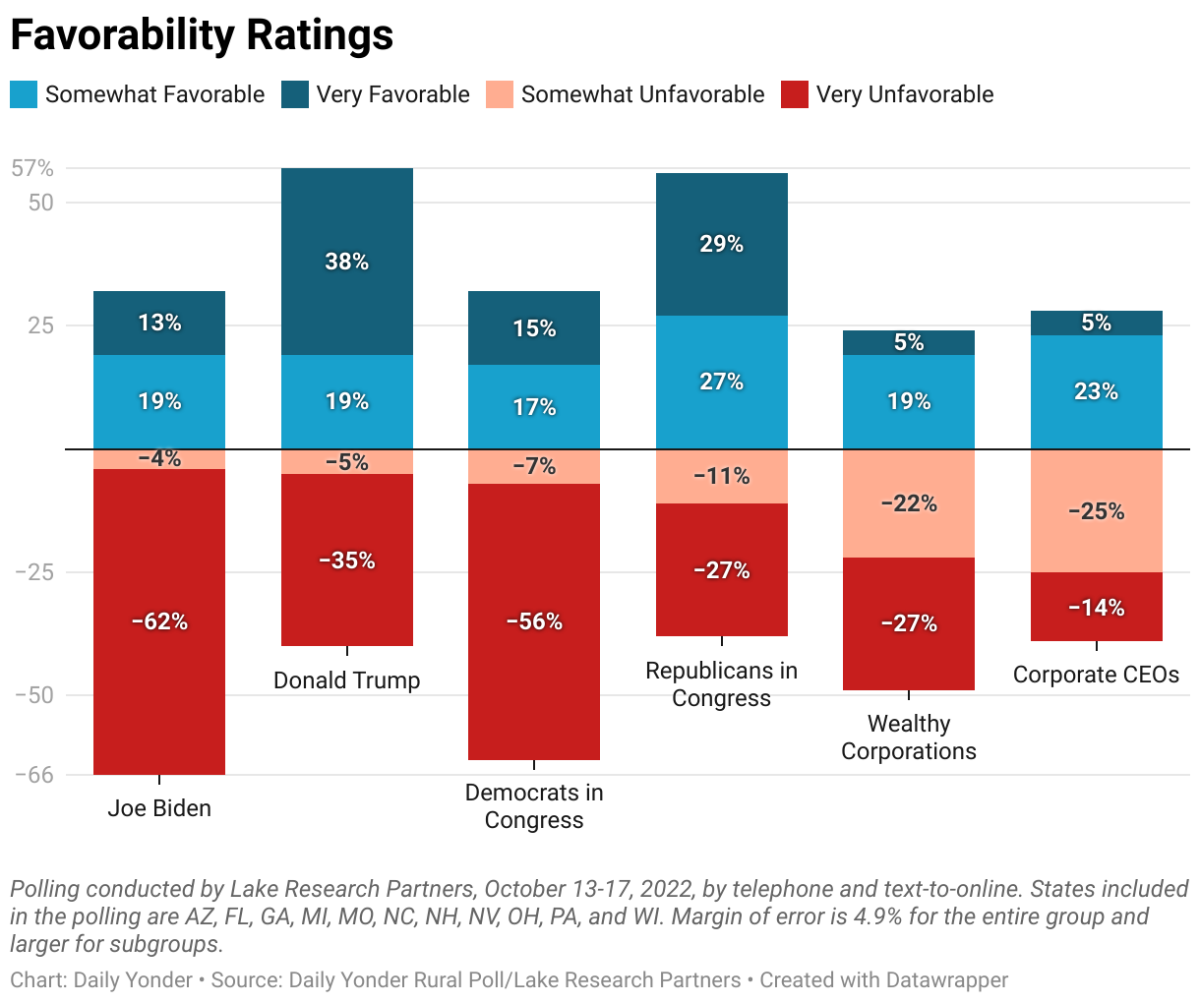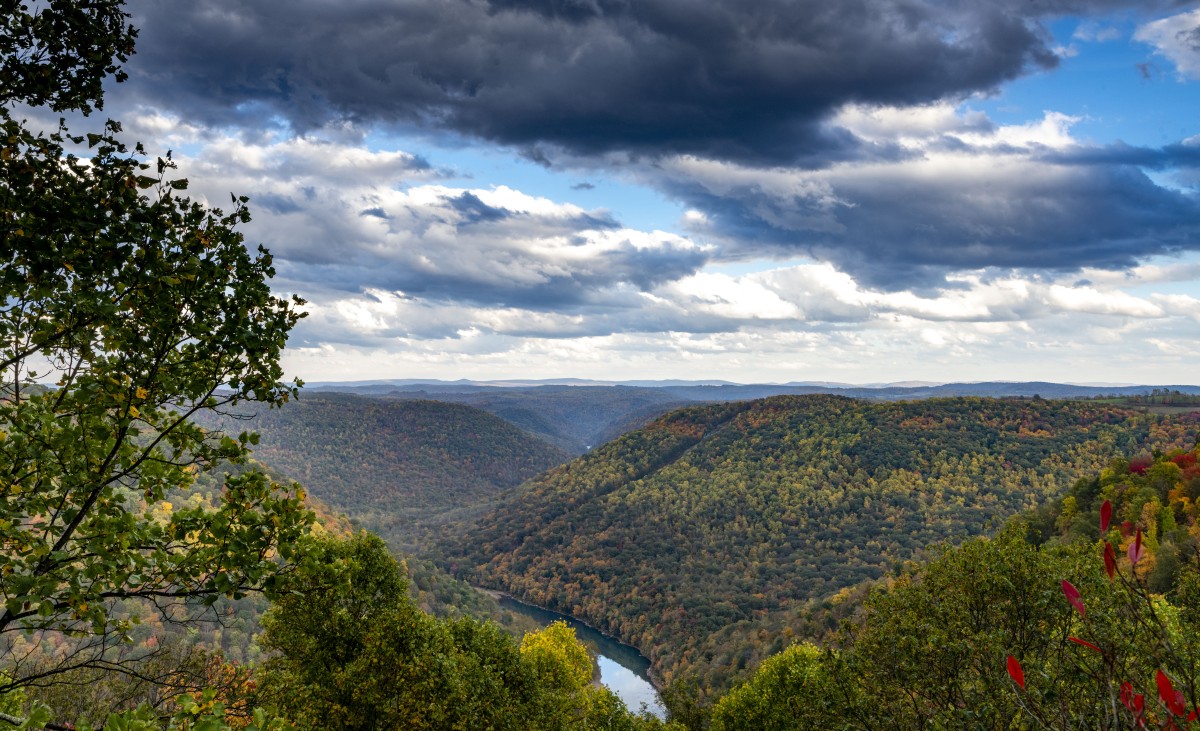Voting is overwhelmingly safe throughout Appalachia, as it is across the country.
Despite reports showing right-wing, anti-democratic extremists are intimidating voters and election officials at higher rates and in more organized ways than in years past, those efforts are still relatively rare.
In West Virginia, for example, no one has filed a voter intimidation complaint with the Secretary of State’s Office or a county clerk since at least 2017, according to Mike Queen, Deputy Chief of Staff and spokesman for Secretary of State Mac Warner.
Intimidation and harassment are forms of political violence, according to Rachel Brown, executive director of Over Zero, a group that works to prevent violence that targets people based on their identity, including political affiliation.
“What voter intimidation is trying to do is make people feel unsafe,” Brown said, adding the goal is to stop them from exercising their constitutional right to vote.
But elections officials and law enforcement agencies are working together with pro-democracy and civil liberties groups to protect U.S. democracy and the ability to safely cast a ballot, and to disrupt false narratives that voting is unsafe.
People worried about safely casting a ballot can contact their local elections office and research local pro-democracy groups that host events like “party at the polls” where people travel to voting sites as a group. There is still time to vote early in several Appalachian states, or to vote on Election Day, which is Tuesday, Nov. 8 this year.
Voter intimidation is illegal in every state, and several federal laws also prohibit intimidation, coercion, threats, or even attempts to interfere with the right to vote freely. Anyone who witnesses or experiences intimidation can file a report with the local election official, the state election office, the U.S. Department of Justice, any number of local and national civil liberties groups, or all of the above. Calling 911 is the best option for people who believe they are in immediate danger.

What to Look Out For
100 Days in Appalachia contacted half a dozen national and local organizations tracking political violence and intimidation efforts, and none could point to specific efforts growing out of or targeting the Appalachian region, though they pointed to a few national anti-democratic trends especially present in swing and Southern states, some of which are part of the Appalachian region.
Anti-democracy organizers have had a couple years to prepare for this election, according to Amy Herzfeld-Copple, deputy director at the Western States Center. She pointed to the national movement for anti-democracy groups to “tailgate” ballot drop box sites, meaning to sit near the boxes and watch who comes and goes. Members of these groups sometimes carry guns and take photos of people coming to drop off their ballots.
Among Appalachian states, only Kentucky and Maryland have drop boxes in public places. In Pennsylvania, the presence of drop boxes is determined by county.
A new law in Georgia limits drop boxes to early voting locations during regular voting hours. Similarly, drop boxes in Ohio and Virginia are only available at election offices and polling sites.
“Tailgating” these sites could violate several laws, depending on how it is done. In a case in Arizona, a federal judge forced a right-wing organization that supported anti-democratic conspiracy theories to stop “(1) carrying guns or wearing body armor near a ballot drop box; (2) confronting or following voters when they are casting ballots or near a drop box; (3) photographing voters who are within 75 feet of a drop box; and (4) releasing voters’ personal information in connection with a claim that they committed voter fraud.”
This was a “blatant example” of voter intimidation and the judge granted all the relief sought by Protect Democracy, according to John Paredes, a lawyer for the group.
“Voter intimidation is something different from political expression. It is not protected by the First Amendment, and that if anyone chooses to intimidate voters or engage in political violence, they can be held liable in a court of law,” Paredes said.
Protect Democracy brought the case on behalf of the local League of Women Voters, which worked with several voters who came forward and reported the intimidation.
There is also a widespread movement on the right to monitor election processes, including by the Republican National Committee and the Conservative Partnership Institute to sign up thousands of people as poll observers.
Partisan observation of voting sites is a long-standing practice that is perfectly legal and often encouraged by election officials. But election officials have reported observers sometimes border on, or veer into, harassment of election officials or voters.
As reported by The Guardian and The Assembly, the North Carolina affiliate of the Conservative Partnership Institute’s efforts aims to have their observers challenge voters at the polls. Similar groups are active in the Appalachian states of Georgia, Pennsylvania and Virginia.
Spreading false information about requirements to vote, about penalties for fraud, disrupting voting lines, or falsely accusing voters of breaking the law are all examples of voter intimidation that likely violate state or federal law.
Protect Yourself, Protect Others
Should voters experience intimidation in the process of voting, including in finding information about the election, in requesting a ballot, voting or returning a ballot, there are a lot of resources to turn to, including from local election officials and national hotlines.
The legal test for intimidation is if “a reasonable voter” would feel intimidated, Paredes said.
If victims of voter intimidation can, in a safe place and very soon after the incident, write down anything they remember, it will help preserve evidence, Paredes said. Names, badges, license plate numbers and other relevant information will be helpful in the report.
In addition to making formal reports about the incident, it could be helpful to reach out to local pro-democracy or civil liberties groups, too, Herzfeld-Copple said. Anti-democratic efforts are closely tied with bigotry, so notifying local civil liberties organizations will also help spread the word so elected officials and business leaders can denounce the actions, she said.
“It’s really important for folks who experienced intimidation, who have the courage to report it, to not end up being isolated, right, to be surrounded by sort of a broad network of community leaders who are really acting in unity,” Herzfeld-Copple said.
Contact Elections Officials
The ACLU encourages voters to report intimidation to election officials.
“The most important people in the network of organizations working to keep elections safe are election workers themselves,” Paredes said.
States often have the option to report intimidation or any other voting issue to local election officials or directly to the state.
Here’s how to find your local or state elections office.
Reporting to elections officials creates a public record of the incident.
You can also contact the nonpartisan Election Protection Hotline and the NAACP Legal Defense Fund. This hotline is continuously staffed by lawyers from a coalition of nonpartisan, pro-democracy groups.
- English: 866-OUR-VOTE – Lawyers’ Committee for Civil Rights Under Law
- Spanish/English: 888-VE-Y-VOTA – NALEO Educational Fund
- Arabic/English: 844-YALLA-US – Arab American Institute (AAI)
- Asian Languages/English: 888-API-VOTE – APIAVote & Asian Americans Advancing Justice (AAJC)
To contact the NAACP Legal Defense Fund, fill out this form.
The Civil Rights Division of the U.S. Department of Justice also operates a hotline at 1-800-253-3931, can be emailed at [email protected] or submitted by an online form.
Complaints about election crimes can be reported to U.S. Attorney’s Offices or FBI offices.



